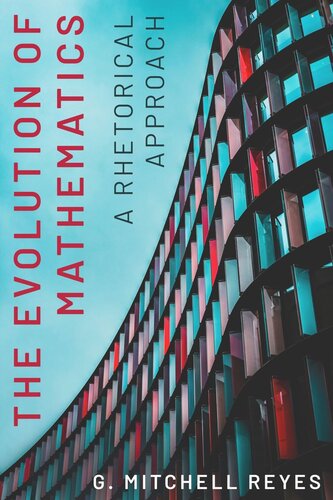

Most ebook files are in PDF format, so you can easily read them using various software such as Foxit Reader or directly on the Google Chrome browser.
Some ebook files are released by publishers in other formats such as .awz, .mobi, .epub, .fb2, etc. You may need to install specific software to read these formats on mobile/PC, such as Calibre.
Please read the tutorial at this link: https://ebookbell.com/faq
We offer FREE conversion to the popular formats you request; however, this may take some time. Therefore, right after payment, please email us, and we will try to provide the service as quickly as possible.
For some exceptional file formats or broken links (if any), please refrain from opening any disputes. Instead, email us first, and we will try to assist within a maximum of 6 hours.
EbookBell Team

0.0
0 reviewsThere is a growing awareness among researchers in the humanities and social sciences of the rhetorical force of mathematical discourse—whether in regard to gerrymandering, facial recognition technologies, or racial biases in algorithmic automation. This book proposes a novel way to engage with and understand mathematics via a theoretical framework that highlights how math transforms the social-material world.
In this study, G. Mitchell Reyes applies contemporary rhetorical analysis to mathematical discourse, calling into question the commonly held view that math equals truth. Examining mathematics in historical context, Reyes traces its development from Plato’s teaching about abstract numbers to Euclidian geometry and the emergence of calculus and infinitesimals, imaginary numbers, and algorithms. This history reveals that mathematical innovation has always relied on rhetorical practices of making meaning, such as analogy, metaphor, and invention. Far from expressing truth hidden deep in reality, mathematics is dynamic and evolving, shaping reality and our experience of it.
By bringing mathematics back down to the material-social world, Reyes makes it possible for scholars of the rhetoric and sociology of science, technology, and math to collaborate with mathematicians themselves in order to better understand our material world and public culture.